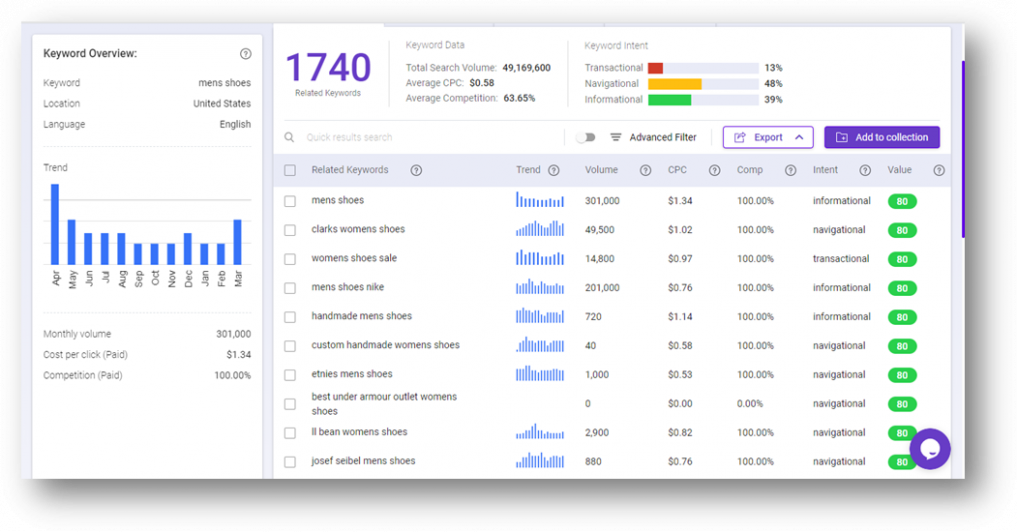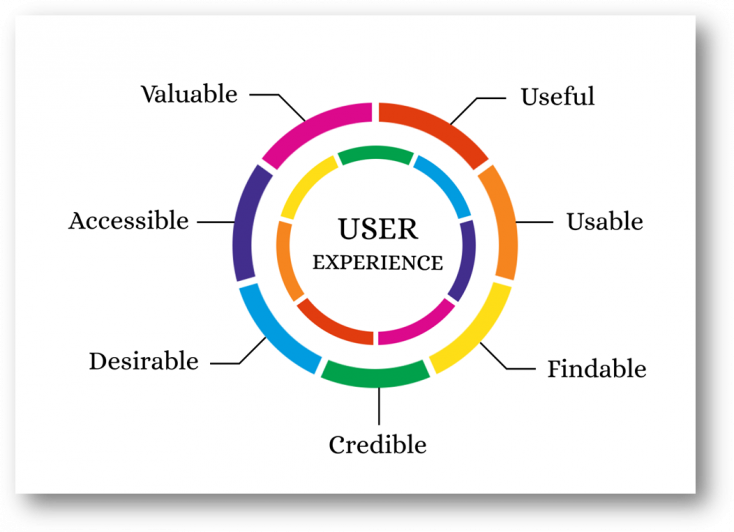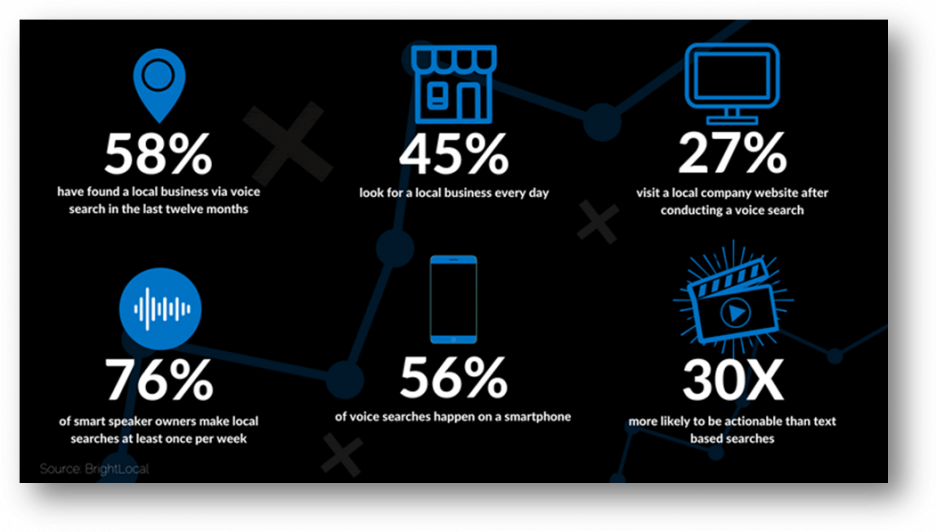What would the future of SEO be like? Link building may be left out in the future for more focus on content and natural language processing. There are 7 trends that may be in focus in the future.
The only constant in the SEO world is it’s always changing.
And Google’s been known to make changes in its algorithm a record 600 times a year.
Google’s main aim regarding its search engine is to deliver the best results for its users.
And this is the main reason it’s constantly updating and improving its algorithms.

Over the past years, Google has made some significant changes, such as Possum in 2016, Penguin 4.0, and BERT in 2019.
These changes have and will affect the future of Google search even more.
These changes could also directly affect the future of SEO.

While it’s impossible to predict SEO’s future, there are some key elements that search engines are more likely to look at.
While you are at it, it would pay to keep in mind that there is no reason to panic.
You only need to wait, read credible sources, and make necessary adjustments to your approach in SEO.
What may fall off from the future of search?
While some of these changes will include adding new elements to the search engines to help produce better results, others include cutting out other features that make the search process less desirable.
We’ll begin by discussing what may be left out in the future.
No more links?
In the past years, a considerable chunk of SEO practice focused on link building because of one simple reason.
Link building was one sure way to increase your rankings.
Although they still do impact rankings, the notion that this will remain in the future is ill-conceived.
The reasoning behind this is quite simple.
As more search elements are being added and algorithms updated, there are various other ways Google could use to improve the results available to its users.
These changes directly affect the future of Google search.
For instance, advancements to Google’s web crawlers could improve their ability to find, index, and avail search results more efficiently.
Other improvements could drive Google to and evolve it to the point that results are availed based on context and personalization.
There’ll be more focus on content
Google is also set to focus more on websites that deliver relevant, helpful content regardless of their domain authority.

Put quite simply, Larry Kim states that websites with “strong domain authority with many links pointing to it but has mediocre content” will be negatively affected by Google algorithms.
For a long time, link building has been seen as an easier way to rank higher in search engine results pages and get more traffic.
However, changes in search engine algorithms and improved updates could negatively impact this strategy.
If you want to avoid this pitfall, it would be best to create relevant, helpful content that provides a solution for your user’s search intent.
You could use these links along with your content.
However, you have to ensure that you give priority to great content in case Google’s algorithms change.
More focus on NLP

Matt Curt says that “links might become less important as Google starts understanding natural language.”
Google BERT’s search algorithm update featured natural language processing and artificial intelligence subset created to learn and understand natural language.
The more Google’s algorithms are tuned towards learning and understanding natural language, the less important links will become.
This reiterates that content creators are better off placing more emphasis on creating high-quality content if they are to escape this pitfall.
Future SEO trends you can consider focusing on
While you’ll need to put less focus on link building in the future, there are other areas where it would pay to turn more attention to.
These SEO elements are considered exceptionally invaluable and are less likely to change the future of SEO.
Search intent
The future of search is focused on search intent.
Search intent, or user intent, refers to the main reason why a user searches for a particular query in a search engine.
There are three major types of search intents: informational, navigational, and transactional.
For Google to satisfy its users, it has to provide them with accurate results.
In other words, it has to fulfill users’ search intent.
Therefore, if search intent is Google’s primary goal, it has to be the main goal for content creators and web developers.
As things go, this is more likely to remain Google’s priority for a long time to come.
How does Google determine search intent?
When users search for queries through Google’s search engine, they’ll check to see whether the information provided is relevant to their search query.
If the information is relevant, they’ll stick around longer.
If it’s not, they’ll go back to the search results.
If they click back to Google’s search results, it sends a message to Google that your content may not be relevant.
The more this happens, the lower you’ll rank on Google’s search engine results pages.
If you want to rank higher now and even more in the future, you need to tailor your content and make it more relevant to your target audience.
BiQ’s Keyword Intelligence could help you identify keyword search intent and help you use the right keywords for your content.
When you search for keywords using our tool, the tool will provide you with various analytical information such as keyword trends, volume, competition, cost per click, intent, value, etc.
After determining your content’s primary goal, all you have to do is choose high-value keywords with the right intent to target the right audience.
If your website is all about selling men’s shoes, then you could search for transactional keywords related to your niche like “men shoes.”

Covering this will secure your ranks now and in the future.
Optimize for semantic search
Semantics is a linguistic study that deals with the logic and meaning of words and how they relate to each other in a particular context.
The study is concerned with matters like sense, reference, presumption, and implication.
At one point in the past, Google could only provide results for actual phrases.
However, Google’s algorithmic updates have been designed to consider intent and contextual meaning in search queries.
When providing search results to users, Google has to ensure that the results are relevant to the users’ search queries.
To ensure that you rank higher now and in the future, you’ll need to use these two primary factors as guidelines when creating your content: user’s search intent and the semantic meaning of search terms.
Doing this will benefit both users, search engines, and, consequently, your website.
How can you optimize for semantic search?
You could begin by writing content that’s specifically targeted for your audience instead of search engines.
As search engines evolve, content specifically targeted to provide helpful content for users becomes more valuable.
Creating this type of content will place you ahead of the curve now and later on in the future.
Improving your brand

As time goes by, more and more online users are and will be more inclined to follow brands.
As such, brands are gaining more popularity.
The best step you could take to secure your e-commerce business is to build your brand upwards.
You could do this by researching your audience.
This will provide you with more insight and provide you with vital information regarding what your audience expects from your brand.
Doing some research and analysis could go a long way into securing your brand and establishing you as an authority in your niche.
Building your brand also works best if you pick your brand’s personality and focus on growing it even further.
Doing this provides your customer with an emotional inlet through which they could connect with your brand.
It gives them a sense of belonging, which makes them loyal to your brand.
It would help if you also chose a meaningful business name that’s not easily forgettable, a catchy slogan, and a unique brand look that your customers can relate to.
You’ll also need to design your brand’s logo and apply all these throughout the various platforms that your business uses.
Provide great user experience

User experience, UX, is another major ranking factor relevant now and could become even more relevant in the future.
But what does it mean?
User experience refers to how pleased your audience is with your website.
Several factors determine user experience, such as perception, ease of use, usefulness, enjoyment, and whether your content provides real value.
The better your user experience, the higher your website is likely to rank on SERPs.
User experience is measured using various metrics such as retention rate, conversion rate, error rate, heuristic evaluation, etc.
Improving your user experience means making your page more accessible.
Enhancing various factors such as load time, adding resourceful images, and creating relevant content that provides real value.
The better your website scores in these metrics, the higher it will rank in Google’s search engine results pages.
Having mobile-friendly websites
40.1% of internet users accessed the internet through mobile phones in 2019.
While the remaining 55.9% percent accessed the internet using PCs.
However, research shows that the number of people using mobile devices to access the internet is steadily growing.
Optimizing your website to make it more mobile-friendly is excellent since it provides you with a bigger audience.
This gives you a clear advantage over your competitors.
Plus, it makes it easier for your audience to share your content over many other platforms, which significantly increases your reach.
Besides, mobile-friendliness is a huge ranking factor for Google.
It also helps you create credibility since visitors who access your website through your mobile device and have a good experience will view you as a credible source of products, information, and services.
Increasing use of voice search

27% of mobile users use voice search on their mobile devices, which is quickly growing.
Optimizing your SEO for voice search could help your brand reach a wider audience, get more traffic, and consequently, more conversions.
While Google’s voice is not perfect, who knows what could happen in the future?
However, the chances are high that Google will perfect voice search algorithms for English and many other languages worldwide.
This possibility, coupled with the fact that more users are opting for voice search, could be excellent motivation for you to optimize your content for voice search.
Doing this will place you more than a few steps ahead of your competitors when the time comes.
Creating evergreen content

We’ve discussed and placed more emphasis on creating great content. Your content needs to be relevant and provide value to your customers.
On top of this, you’ll also need to create evergreen content.
But what do we mean by this?
Evergreen content refers to content that remains relevant over a long period.
Your content should cover significant challenges in your niche.
You also have to ensure that you emphasize content that your audience will find relevant years to come.
To find such topics, you’ll need to do lots of research and analysis in your niche.
Creating high-quality content around such topics could help make you an authority in your niche and make you relevant for some time to come.
You can use BiQ’s Content Intelligence to create high-quality content.

If you have a great keyword at hand, add your keyword to Content Intelligence and get tips and guidelines to help you create fantastic content.
Most content creators hop on to Google and type in their keywords and open dozens of tabs.
This process can be inefficient, slow, and sometimes result in errors that may affect your rankings.
You could use our tool and get related keywords that you could use to craft your content and make it more relevant to your target audience.
You could also use these keywords as guidelines for creating remarkable content!
Conclusion
Observing the SEO world from a few years back to what it’s become today, you notice significant differences.
However, while there have been some changes, some elements are more likely to stay the same, or they may even get more advanced.
While all these changes affect SEO’s future, the trick to staying on top of the game is to be diligent and persistent.
What are the changes you’ve observed, and what do you think the future of SEO will be like?




